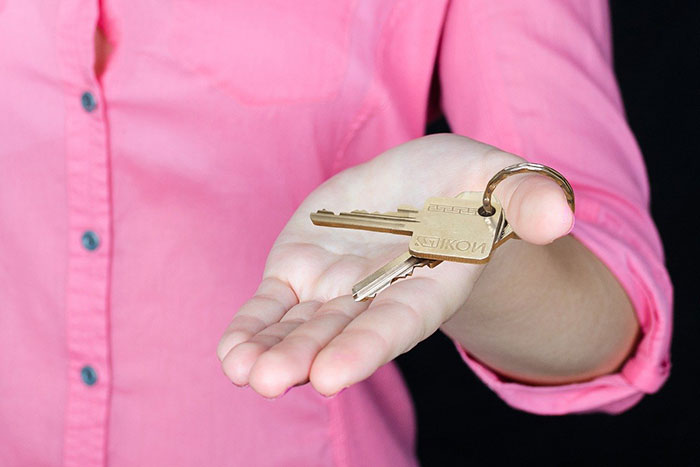To make it in today’s economy, you honestly need to have more than one source of income coming in. True enough, you can work a part-time job in a mall or restaurant, but to live comfortably, that type of income just won’t cut it. You’re going to need to generate some type of passive income.

Generating passive income sounds easy enough, right? Just invest in a rental property. That’s actually a great way to generate passive income, and it’s how lots of people do it, unfortunately, it’s not as easy as saying, “I’m going to invest in a rental property,” and you acquire property just like that… There’s a lot more that goes into it. For example, you have to find the perfect location, you have to look at potential unexpected costs, calculate operating expenses, and ideally, you want to find a direct lender to cut out the confusion of a “middle man.”
So those are some major considerations you have to look at before taking on the role of “landlord.” Now, if you’ve actually made the decision to become a landlord and you have all legalities in order to do so, then you’re off to a good start! Most would say that the financial and legal aspects to become a landlord are the hardest parts, so if you’ve overcome that hurdle, then it’s smooth sailings from there.
But…
Acquiring a property and the loan process actually isn’t the hardest part. This might come as a surprise to you but one of the hardest parts of wearing the hat of a landlord is actually finding a good tenant. Now, you, of course, can conduct a background check, eviction check, and check a potential tenant’s credit report to make the process much easier.
But even with that, your responsibilities as a landlord don’t end there once a lease is signed… In fact, once that lease is signed, your responsibilities will be just starting.
In taking on the role of landlord, there are landlord-tenant laws you must be aware of and state and local laws and regulations you’ll need to be in compliance with as well. Just as you have expectations for your tenant to follow, like paying rent on time and following guidelines in the lease agreement, your tenant has expectations for you to honor as well like keeping the property maintained and fixing necessary repairs.
In your role as a landlord, here are three of the biggest responsibilities you will take on.
3 Major Responsibilities in Becoming a Landlord
1. Making Necessary Repairs
Do you know your way around a toolbox? Do you know how to fix a busted pipe? If you’re slightly handy, then you can take on the role of landlord and handle some of the small repairs, or you can hire a third party to handle all maintenance requests of your tenant. The main thing is to make sure that when a tenant reports a repair that you take care of it almost immediately, especially if the repair causes your property to become uninhabitable or poses a major safety hazard.
Making necessary repairs for your property that your tenant reports is so important because it can potentially mean the difference between receiving a full month’s rent or a part payment due to the tenant hiring a third party company to do your job, taking the repair cost our of their rent.
Also, make sure you have property entry regulations in place to ensure you uphold your responsibilities as a landlord without invading the privacy of your tenant. Communication is going to play a major role here.
2. Maintaining the Property
As a landlord, it is your responsibility to maintain your property, but certain property defects don’t always fall under your responsibility. Things like a fresh coat of paint to the house and a well-maintained lawn will attract tenants of a higher caliber, and those are the tenants that will treat your property with respect and keep the property maintained.
But certain property defects like carpet stains/worn carpet and tattered blinds are things that you may not necessarily be responsible for as the landlord, leaving the tenant to have those items replaced. Just make sure your maintenance responsibilities and the tenant responsibilities are clearly explained in the leasing agreement.
3. Crime and Safety Measures
As a landlord, you want to make sure your tenants are safe from crime. To ensure the safety of your tenants, it could be something as simple as walkway lights, sturdy door locks, and even screen doors. And to prevent crime from the very beginning, you have to conduct a thorough screening process.
According to npr.org, one in four Americans have a criminal record that ranges from petty to serious. But according to HUD’s new housing regulations, denying housing over a criminal record could be looked at as discriminatory. So be sure to check with HUD to see what denies an applicant without being discriminatory, because there is a fine line.
You also need to keep in mind that safety isn’t just from a crime standpoint either. You need to ensure your tenants are safe beforehand by adhering to smoke and carbon monoxide regulations as well as checking for mold and pests. This actually falls under the warrant of habitability by taking all measures to ensure your property is fit for tenants to live in.
As a landlord, your responsibilities will be a continuous list of to-dos. Whether you’re investing in a rental property as a full-time gig or as a second source of income, just understand that it will require a lot from you. Look into all the responsibilities of a landlord to determine if it is indeed right for you.
